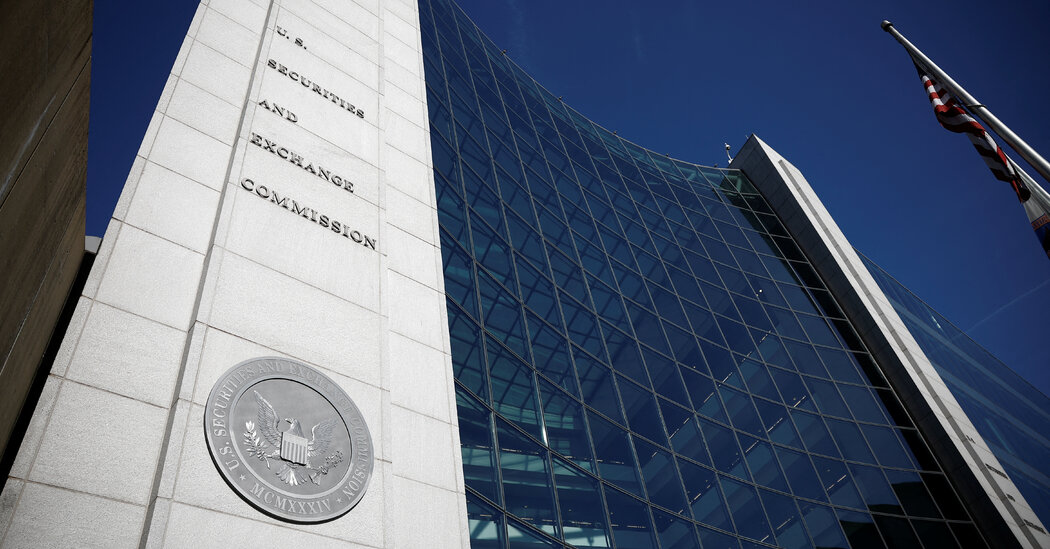President Trump has paused enforcement of a federal regulation he has lengthy bemoaned: the Foreign Corrupt Practices Act, which prohibits firms from bribing international officers.
The regulation, enacted in 1977, makes it unlawful for firms that perform in america to pay international executive officers to safe trade offers. Mr. Trump’s order on Monday bars federal prosecutors from launching new investigations or enforcement movements for 180 days. The Trump management additionally mentioned it will overview current investigations to “repair right kind bounds” at the regulation.
The regulation, which is enforced through the Division of Justice and the Securities and Change Fee, has been leveraged closely during the last twenty years to crack down on bribery, together with in international locations the place this can be a not unusual trade follow.
It’s unclear how Mr. Trump’s govt order, which pauses felony investigations, will observe to the S.E.C., which ceaselessly brings civil movements in tandem with the Justice Division. Civil and felony consequences can come with hundreds of thousands of greenbacks in fines and jail time for people.
Right here’s what to understand in regards to the anti-corruption regulation:
Why is Mr. Trump pausing enforcement of the regulation?
In ordering the pause, Mr. Trump argued that the regulation put American companies at a drawback, echoing a grievance lengthy made through the trade group. The White Area wrote in a reality sheet on Monday that U.S. firms had been harmed through “overenforcement” as a result of they had been “prohibited from attractive in practices not unusual amongst world competition, developing an asymmetric enjoying box.”
Right through his first time period within the White Area, Mr. Trump asked administration officials to assist kill the act, an effort that didn’t acquire traction. However Democrats and Republicans alike have criticized its enforcement, mentioned Mike Koehler, a pupil of the International Corrupt Practices Act who teaches at Texas A&M and different universities.
“Many of those substantive problems mentioned in that govt order had been mentioned through many of us for a number of years,” Mr. Koehler mentioned. The Justice Division in prior administrations had “already been tinkering round with F.C.P.A. enforcement,” he added, noting that circumstances had been dropped on nationwide safety grounds.
Critics have additionally argued that through being extra competitive than different international locations in prosecuting international bribery circumstances, america will increase companies’ compliance prices. The influential New York Town Bar Affiliation questioned the ones prices in a 2011 document.
How has the anti-bribery rule just lately been carried out?
Each federal prosecutors and securities regulators have aggressively pursued massive firms for violations. Closing yr, there have been about 30 F.C.P.A. enforcement movements; in 2004, there have been 4.
One notable fresh case was once an investigation into Goldman Sachs’s involvement within the scandal over Malaysia’s 1MDB sovereign wealth fund. The funding financial institution were charged with paying bribes to Malaysian officers so it would set up billions of greenbacks in bonds issued through the fund.
The investigation culminated with a Goldman subsidiary’s pleading in charge to a international bribery fee and paying greater than $2.9 billion in fines and consequences. A former Goldman banker was once sentenced to ten years in jail.
Closing yr, F.C.P.A. enforcement movements integrated a $220 million agreement with SAP, a multinational device corporate, to unravel investigations into schemes to pay bribes to executive officers in South Africa and Indonesia. Deere & Corporate additionally agreed to pay just about $10 million to settle S.E.C. fees stemming from allegations of bribes paid through its Thailand subsidiary.
What are the results of pausing enforcement?
Whilst some pending investigations may just finish on account of Mr. Trump’s order, it’s unclear if circumstances might be dropped. In November, U.S. prosecutors accused Gautam Adani, the Indian wealthy person, of bribing Indian officers and charged him with fraud. His corporate, the Adani Staff, has referred to as the allegations baseless.
Pausing enforcement may just result in a upward push in corrupt process, mentioned Karen Woody, a regulation professor at Washington and Lee College who specializes in securities regulation and fiscal legislation. Ms. Woody mentioned that she had criticized “heavy-handed prosecution” underneath the International Corrupt Practices Act, however {that a} halt may just permit firms to steer clear of prosecution for bribery.
“For multinational firms, this can be a large deal that this isn’t going to be enforced,” Ms. Woody mentioned. “It in reality is a big sea trade.”
However, she added, “that doesn’t imply they’re off the hook for international bribes or shady international trade practices.” Different international locations, together with Britain and Germany, have anti-corruption provisions, she mentioned.
Even sooner than Mr. Trump’s govt order, his new lawyer basic, Pamela Bondi, signaled that her place of work would take a much less expansive view of international bribery circumstances. In a memo outlining her priorities, Ms. Bondi mentioned F.C.P.A. circumstances would center of attention on investigations involving drug cartels or world crime organizations.
And if the Justice Division in Washington steps again, native U.S. lawyers might be able to begin circumstances on their very own, mentioned Richard Donoghue, a spouse at Pillsbury Winthrop Shaw Pittman and previous Justice Division respectable. He added that there was once more likely to be a shift towards prosecution of people who paid bribes, reasonably than firms.
“Going ahead, this creates extra alternatives for companies to argue to prosecutors that they must no longer held accountable for the misconduct in their staff,” Mr. Donoghue mentioned.
Matthew Goldstein and Isabella Kwai contributed reporting.



